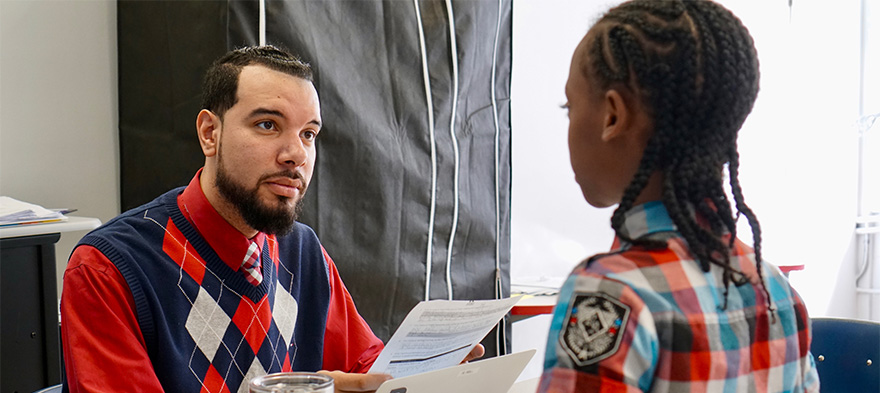
Dec 14, 2016 12:00:00 AM
Sharif El-Mekki is the Founder and CEO of the Center for Black Educator Development. The Center exists to ensure there will be equity in the recruiting, training, hiring, and retention of quality educators that reflect the cultural backgrounds and share common socio-political interests of the students they serve. The Center is developing a nationally relevant model to measurably increase teacher diversity and support Black educators through four pillars: Professional learning, Pipeline, Policies and Pedagogy. So far, the Center has developed ongoing and direct professional learning and coaching opportunities for Black teachers and other educators serving students of color. The Center also carries forth the freedom or liberation school legacy by hosting a Freedom School that incorporates research-based curricula and exposes high school and college students to the teaching profession to help fuel a pipeline of Black educators. Prior to founding the Center, El-Mekki served as a nationally recognized principal and U.S. Department of Education Principal Ambassador Fellow. El-Mekki’s school, Mastery Charter Shoemaker, was recognized by President Obama and Oprah Winfrey, and was awarded the prestigious EPIC award for three consecutive years as being amongst the top three schools in the country for accelerating students’ achievement levels. The Shoemaker Campus was also recognized as one of the top ten middle school and top ten high schools in the state of Pennsylvania for accelerating the achievement levels of African-American students. Over the years, El-Mekki has served as a part of the U.S. delegation to multiple international conferences on education. He is also the founder of the Fellowship: Black Male Educators for Social Justice, an organization dedicated to recruiting, retaining, and developing Black male teachers. El-Mekki blogs on Philly's 7th Ward, is a member of the 8 Black Hands podcast, and serves on several boards and committees focused on educational and racial justice.
Few issues in education spark more tension and debate than standardized testing. Are they a tool for equity or a burden on students? A necessary check on school systems or a flawed measure of...
Charter schools are public schools with a purpose. Operating independently from traditional school districts, they're tuition-free, open to all students, and publicly funded—but with more flexibility...
Despite the benefits of a diverse teaching force, prospective teachers of color fall out of our leaky preparation pipeline at every stage: preparation, hiring, induction, and retention. Here’s what...
Ed Post is the flagship website platform of brightbeam, a 501(c3) network of education activists and influencers demanding a better education and a brighter future for every child.
© 2020-2025 brightbeam. All rights reserved.
Leave a Comment